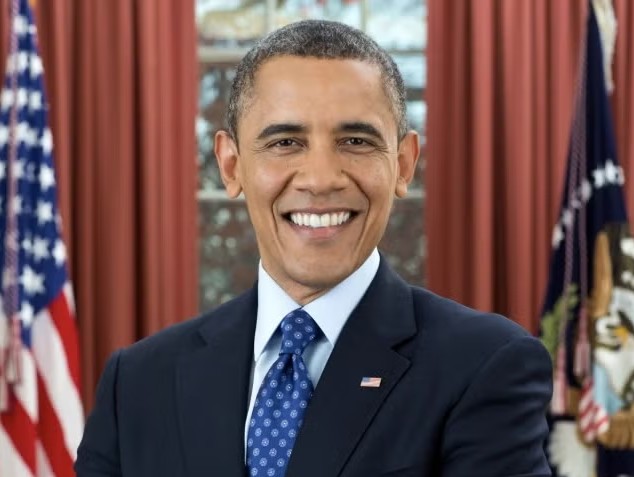
Barack Obama
Explore the legacy and impact of former President Barack Obama on America and the world.
Celebrating the Legacy of Barack Obama
Barack Obama: From Childhood to the White House
Barack Hussein Obama II, born on August 4, 1961, in Honolulu, Hawaii, rose from modest beginnings to become the 44th President of the United States, serving from 2009 to 2017. His journey from childhood to the highest office in the land is a story of determination, resilience, and a deep belief in the power of change.
Early Life and Family Background
Obama’s father, Barack Obama Sr., was a Kenyan economist, and his mother, Ann Dunham, was an anthropologist from Kansas. They met while studying at the University of Hawaii but separated when Barack was just two years old. His father returned to Kenya, and Obama saw him only once more before his father’s death in 1982.
His mother later married Lolo Soetoro, an Indonesian student, prompting the family to move to Jakarta, Indonesia. There, Obama experienced a different culture and lifestyle, attending local schools and adapting to life abroad. His mother emphasized education, waking him early for extra lessons.
At age 10, Obama returned to Hawaii to live with his grandparents, Madelyn and Stanley Dunham. He attended the prestigious Punahou School, where he excelled academically but also wrestled with questions of identity and belonging.
Education and Early Career
After high school, Obama studied at Occidental College in Los Angeles before transferring to Columbia University in New York City, where he majored in political science. After graduation in 1983, he worked in New York for a few years before moving to Chicago to work as a community organizer.
In Chicago, Obama worked with the Developing Communities Project, helping improve conditions in underserved neighborhoods. His experiences there deepened his commitment to social justice and fueled his desire to create systemic change.
Determined to amplify his impact, Obama attended Harvard Law School in 1988. There, he became the first Black president of the prestigious Harvard Law Review, gaining national attention. After graduating magna cum laude in 1991, he returned to Chicago, working as a civil rights attorney and teaching constitutional law at the University of Chicago.
Entry into Politics
Obama’s political career began in 1996 when he was elected to the Illinois State Senate. As a state senator, he worked on issues like healthcare reform, education funding, and criminal justice reform. His legislative record demonstrated a knack for building bipartisan coalitions.
In 2004, he ran for the U.S. Senate. His stirring keynote address at the Democratic National Convention that year catapulted him into the national spotlight. His message of unity, hope, and shared destiny resonated deeply with Americans.
Obama won the Senate seat by a landslide and took office in 2005. As a U.S. Senator, he worked on ethics reform, promoted transparency in government, and opposed the Iraq War. His charisma, eloquence, and vision made him a rising star within the Democratic Party.
Presidential Campaign and Election
In February 2007, Barack Obama announced his candidacy for President of the United States. His campaign emphasized "hope" and "change," focusing on issues like healthcare reform, ending the Iraq War, and addressing the economic crisis.
His campaign built a groundbreaking grassroots movement, harnessing social media and mobilizing millions of volunteers. Obama won a fiercely contested primary battle against Hillary Clinton and secured the Democratic nomination.
On November 4, 2008, Obama defeated Republican nominee John McCain, becoming the first African American President of the United States. His election symbolized a transformative moment in U.S. history, reflecting progress toward racial equality.
The White House Years
Obama was inaugurated on January 20, 2009, amid one of the worst economic crises since the Great Depression. His administration swiftly passed the American Recovery and Reinvestment Act to stimulate the economy and stabilize financial markets.
Healthcare reform became a defining achievement of his presidency. After a hard-fought legislative battle, the Affordable Care Act (ACA), commonly known as "Obamacare," was signed into law in 2010, expanding healthcare coverage to millions of Americans.
On the foreign policy front, Obama focused on ending U.S. military involvement in Iraq and intensifying efforts against terrorism. In May 2011, U.S. forces killed Osama bin Laden in a raid authorized by Obama, a significant moment in his presidency.
Obama’s tenure also saw landmark progress in civil rights, including the repeal of "Don’t Ask, Don’t Tell" and the Supreme Court’s ruling legalizing same-sex marriage nationwide in 2015, supported by his administration.
Despite significant legislative achievements, Obama faced fierce partisan opposition throughout his presidency. His efforts on immigration reform, gun control, and climate change were often blocked by a divided Congress.
He was reelected in 2012, defeating Republican nominee Mitt Romney. His second term focused on climate change, criminal justice reform, and securing international agreements like the Iran nuclear deal and the Paris Climate Accord.
Legacy and Impact
Barack Obama left office on January 20, 2017, with a legacy marked by both historic achievements and ongoing debates about his policies. His presidency redefined American politics, inspiring a new generation of leaders and activists.
Through his post-presidency work, including the Obama Foundation, he continues to champion causes like leadership development, civic engagement, and global cooperation.
Obama’s journey from a biracial child grappling with his identity to a transformative leader on the world stage is a testament to resilience, hope, and the enduring promise of the American dream.
References
Maraniss, D. (2012). Barack Obama: The story. Simon & Schuster.
Obama, B. (2006). The audacity of hope: Thoughts on reclaiming the American dream. Crown Publishers.
Remnick, D. (2010). The bridge: The life and rise of Barack Obama.
Knopf. Smith, J. (2017). Barack Obama’s legacy. Journal of Political History, 29(3), 145-167.
Woodward, B. (2012). The Obama wars. Simon & Schuster.
https://www.whitehouse.gov/, https://www.obamalibrary.gov/obamas/president-barack-obama


